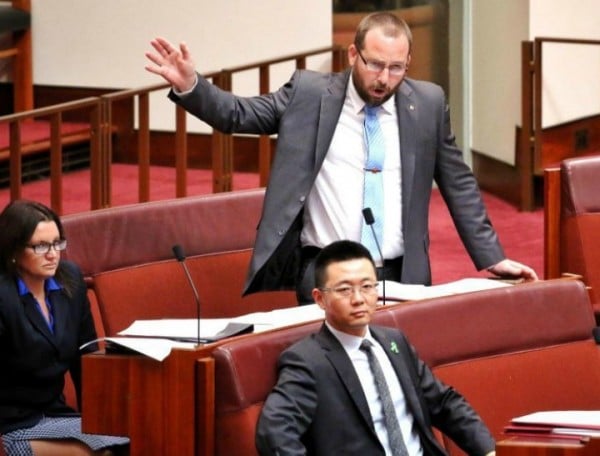
By Annabel Crabb.
All this week we’ve watched our senators fight tooth and nail over the proposed electoral reforms. It’s fair to say a more frightening hellscape of passive aggression is yet to be identified, writes Annabel Crabb.
For days now, and with all the fervour of a drunk at a bus stop, the Senate has been arguing with itself about its own fate.
Even allowing for Canberra’s established tendency to self-absorption, it’s been quite the spectacle: 76 senators fighting tooth and nail on the question of how senators should be chosen in future.
In ordinary life, of course, decision-makers with such a Taj Mahal-sized personal conflict of interest in an issue would be obliged to recuse themselves.
But the Senate is the Senate, and it’s kind of pointless without senators.
And so it’s lurched along.

